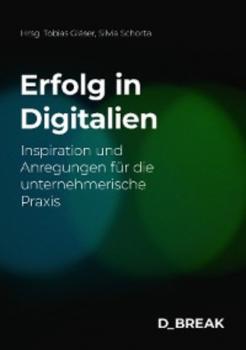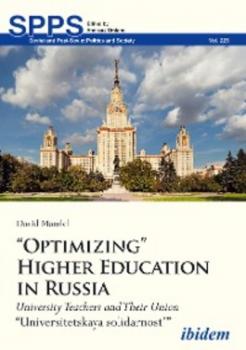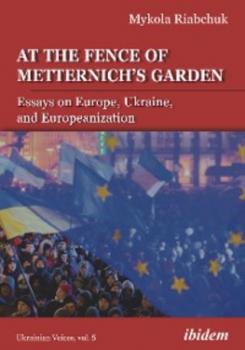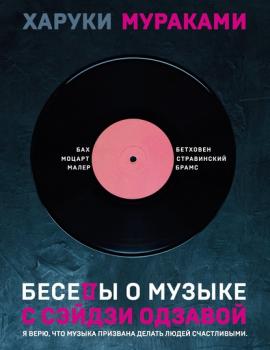Зарубежная публицистика
Различные книги в жанре Зарубежная публицистикаErfolg in Digitalien
Als Unternehmer*innen sind wir stetig unterwegs. Wir entwickeln Ideen und setzen diese um. Wir verfolgen Ziele, passen uns Entwicklungen an, reagieren auf äussere Einflüsse und Gegebenheiten, tragen Verantwortung, arbeiten in unterschiedlichsten Teamkonstellationen, treffen Entscheidungen, scheitern, reüssieren, lernen und entwickeln uns weiter.
Alle reden davon, viele fühlen sich genötigt, andere schreiten voller Entdeckerdrang und Lust voran. Für etliche ist es ein ferner Ort, der wenig verheissungsvoll wirkt, während er für manche schon nach wenigen Schritten beginnt und wie Alices Wunderland bunt und reizvoll erscheint.
Das sagenhafte Digitalien.
Doch was, wenn Digitalien keine weit in der Ferne liegende Feriendestination ist? Was, wenn wir alle – ob wir wollen oder nicht – uns längst auf dem Weg befinden? Und was, wenn Digitalien kein Ort ist, sondern vielmehr einer Haltung gleichkommt?
Wir sind davon überzeugt: Es gibt keine fixe Packliste, kein bestmögliches Transportmittel, keine direkte Reiseroute und keine Rundum-Sorglos-Pauschalangebote, die uns «digital» werden lassen.
Es gibt bereits viele Reisende, die spannende Wege gegangen sind, jede Menge Eindrücke und Erfahrungen gesammelt haben und sich bereits einleben in Digitalien. Reisende, die über diesen Prozess berichten, ihr neues Wissen teilen und ihre Erlebnisse und Erkenntnisse verfügbar machen.
In diesem Buch kommen Unternehmer*innen zu Wort, die sich bereits nach Digitalien aufgemacht haben und «Digital» als Mindset verstehen, ohne dabei der Versuchung zu erliegen, in eindimensional technischen Lösungen zu denken. Sie haben in den letzten Jahren unterschiedlichste digitale Routen erkundet und ausprobiert. Deshalb können sie von passenden und unpassenden Transportmitteln berichten und Einblick in unternehmerische, kulturelle und planerische Erkenntnisse und Erfahrungen geben, die anderen digitalen Weggefährten als inspirierender Reiseführer dienen mögen.
Wir sind wie Stunden
Mehr oder weniger handeln alle hier versammelten Texte von Zeit und Geschichte, Fortschritt und Vergänglichkeit, von Werten und Werden, Sein und Bleiben, von Wandel und Vanitas. Zwischen 2010 und 2020 entstanden, wollen sie als Essays gelesen werden, folglich weniger als Beiträge zu den Fachwissenschaften, mit denen sie sich berühren, denn als schriftstellerische Versuche. Formal handelt es sich um sprachschöpferische Arbeiten eines klassischen Feuilletonisten, inhaltlich um Produkte von Zusammenschau, Kompilation und Kombination, wobei der Verfasser Ergebnisse eingehender Recherchen mit eigenen Einsichten und Hypothesen verwob, um Grundsätzliches mitzuteilen und nachvollziehbar darüber nachzudenken.
“Optimizing” Higher Education in Russia
In 2012, soon after his election to a third presidential term as president, following a four-year stint as prime minister (to avoid modifying the constitution), and in the wake of an unprecedented wave of popular protests, Vladimir Putin issued his “May Decrees.” Notable among them was the government’s commitment to increase the salaries of doctors, scientific researchers and university teachers to double the average in their respective regions by 2018. But then on December 30 of that year, the government issued a “road map” for education, revealing that the salary increases in higher education would be paid for, not by significant new government funding, but by “optimization,” which would eliminate 44% of the current teaching positions in higher education. This was justified in part by a forecasted drop in student enrollment.
Thus opened a new, accelerated period of reform of higher education. David Mandel examines the impact of these reforms on the condition of Russia’s university teachers and the collective efforts of some teachers, a small minority, to organize themselves in an independent trade union to defend their professional interests and their vision of higher education.
Apart from the subject’s intrinsic interest, an in-depth examination of this specific aspect of social policy provides valuable insight into the nature of the Russian state as well as into the condition of “civil society,” in particular the popular classes, to which Russian university teachers belong according to their socio-economic situation, if not necessarily their self-image.
At the Fence of Metternich's Garden
This collection of essays reflects the personal experience of a Ukrainian intellectual engaged, since his Soviet-time youth, in a painstaking but fascinating process of the both cultural and political ‘Europeanization’ of his country. The title refers, ironically, to the notorious Chancellor Metternich’s quip that Asia presumably begins at the eastern fence of his garden (or, as another apocryphal version maintains, at the eastern end of the Viennese Landstrasse). This is a story of both exclusion and inclusion, of walls and fences, but also of a longing for freedom and a quest for solidarity. It is a book on different ways of being a ‘European’—at both the collective and individual level,—despite various challenges or, perhaps, thanks to them.
Journal of Soviet and Post-Soviet Politics and Society
Special Sections: Russian Foreign Policy Towards the “Near Abroad”and Russia's Annexiation of Crimea II
This special section deals with Russia’s post-Maidan foreign policy towards the so-called “near abroad,” or the former Soviet states. This is an important and timely topic, as Russia’s policy perspectives have changed dramatically since 2013/2014, as have those of its neighbors. The Kremlin today is paradoxically following an aggressive “realist” agenda that seeks to clearly delineate its sphere of influence in Europe and Eurasia while simultaneously attempting to promote “soft-power” and a historical-civilizational justification for its recent actions in Ukraine (and elsewhere). The result is an often perplexing amalgam of policy positions that are difficult to disentangle. The contributors to this special issue are all regional specialists based either in Europe or the United States.
Военная мысль Китая
В сборник вошли цитаты из китайских классических философских трактатов, некоторые из них переведены на русский язык впервые. Афоризмы посвящены военной тактике, стратегии, личным качествам правителя и полководца, а также управлению государством. Для широкого круга читателей.
Беседы о музыке с Сэйдзи Одзавой
Харуки Мураками верен себе. Он делает то, что ему нравится, и так, как он считает это делать нужно. «Вот и эти беседы – это интересное переживание. Наш разговор не был интервью в общепринятом смысле. Не был он и пресловутой беседой двух знаменитостей. Мне хотелось – а вернее, неудержимо захотелось в ходе разговора – беседовать в естественном ритме сердца. …Главное – что по мере того, как в беседе раскрывался маэстро Одзава, в унисон открывался я сам». В итоге оказалось, что это два единомышленника с одинаковым жизненным вектором. Во-первых, они оба испытывают «чистую незамутненную радость от работы». Во-вторых, в них живет мятежный дух и вечная неудовлетворенность достигнутым – та же, что и в молодые годы. В-третьих, их отличает «упорство, жесткость и упрямство» – выполнить задуманное только так, как они это видят, кто бы что им ни говорил. А главное – Харуки Мураками и Сэйдзи Одзава по-настоящему любят музыку. Делятся своими знаниями, открывают новые интереснейшие факты, дают нам глубже заглянуть в этот прекрасный мир звуков, который наполняет сердце радостью. «Хорошая музыка – как любовь, слишком много ее не бывает. …Для многих людей в мире, она – ценнейшее топливо, питающее их желание жить». В формате PDF A4 сохранен издательский макет книги.
Особое чувство собственного ирландства
«Особое чувство собственного ирландства» – сборник лиричных и остроумных эссе о Дублине и горожанах вообще, национальном ирландском характере и человеческих нравах в принципе, о споре традиций и нового. Его автор Пат Инголдзби – великий дублинский романтик ХХ века, поэт, драматург, а в прошлом – еще и звезда ирландского телевидения, любимец детей. Эта ироничная и пронизанная ностальгией книга доставит вам истинное удовольствие.









